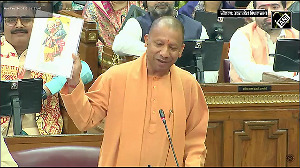The Supreme Court in its order said it was not open for SP group companies to call Ratan Tata a “shadow director” when the board of which Cyrus Mistry was chairman had nominated him as chairman emeritus of the USD 100 billion salt-to-software Tata group.

A bench of Chief Justice SA Bobde and Justices AS Bopanna and V Ramasubramanian, while referring to Cyrus Mistry's appointment as executive chairman of Tata Sons, on Friday said, “Someone who gained entry through the very same door cannot condemn it when asked to exit”.
“When the board, of which CPM (Cyrus Pallonji Mistry) was a chairman, nominated RNT (Ratan Tata) as chairman emeritus and recorded their desire to look forward to his support and guidance, it is not open to the complainant companies to call RNT a shadow director,” the bench said.
It said that if someone aggrieved after his removal from office can engage in shadow-boxing through the companies controlled by him, he cannot accuse the very same person who chose him as successor to be a shadow director.
The bench was dealing with the objections of Shapoorji Pallonji (SP) group companies on Tata vetting the minutes of the meetings of the board post facto and his participation as a shadow director.
The top court noted that Mistry himself sought, while accepting the office of executive chairmanship, the continued guidance of Tata.
“Therefore, the challenge to the affirmative voting rights and the allegations revolving around pre consultation and pre clearance by the Trusts of all items in the agenda and RNT's indirect or direct influence or grip over the board are all liable to be rejected,” the bench said.
The top court said success and profit-making are at the core of business enterprises and, therefore, the best interest of the majority shareholders need not necessarily be in conflict with the interest of the minority or best interest of the members of the company as a whole, unless there is siphoning off or diversion.
“Such a question does not arise when the majority shareholders happen to be charitable Trusts engaged in philanthropic activities. It is good to wish that the creation gets liberated from the creator, so long as the creator does not have any control or ability to manipulate. In the corporate world, democracy cannot be seen as an ugly expression, after using the very same democratic process for the appointment of directors,” the bench said.
The top court, which set aside the order of National Company Law Appellate Tribunal (NCLAT) restoring Cyrus Mistry as executive chairman of the Tata Sons said, “Whenever an institution happens to be a shareholder and a notice of a meeting either of the board or of the general body is issued, it is but normal for the institution to have an idea about the stand to be taken by them in the forthcoming meeting.”
Dealing with the claim of proportionate representation made by SP group in Tata Son's board of directors, the bench said that Tata, who was the mantle as the Chairman of Tata Sons for a period of 21 years from 1991 to 2012, actually conceded a more than proportionate share to the SP group by nominating Cyrus Mistry as his successor.
It noted that Cyrus Mistry was also crowned as executive deputy chairman on March 16, 2012 and as chairman later and he continued to be in the post till “he set his own house on fire in 2016”, when he was ousted.
“If the company's affairs have been or are being conducted in a manner oppressive or prejudicial to the interests of the SP group, we wonder how a representative of the SP group holding a little over 18 per cent of the share capital could have moved up to the top most position within a period of six years of his induction?” the bench said.
It said that therefore, “We are of the considered view that the claim for proportionate representation on the Board is neither statutorily or contractually sustainable nor factually justified.”












 © 2025
© 2025